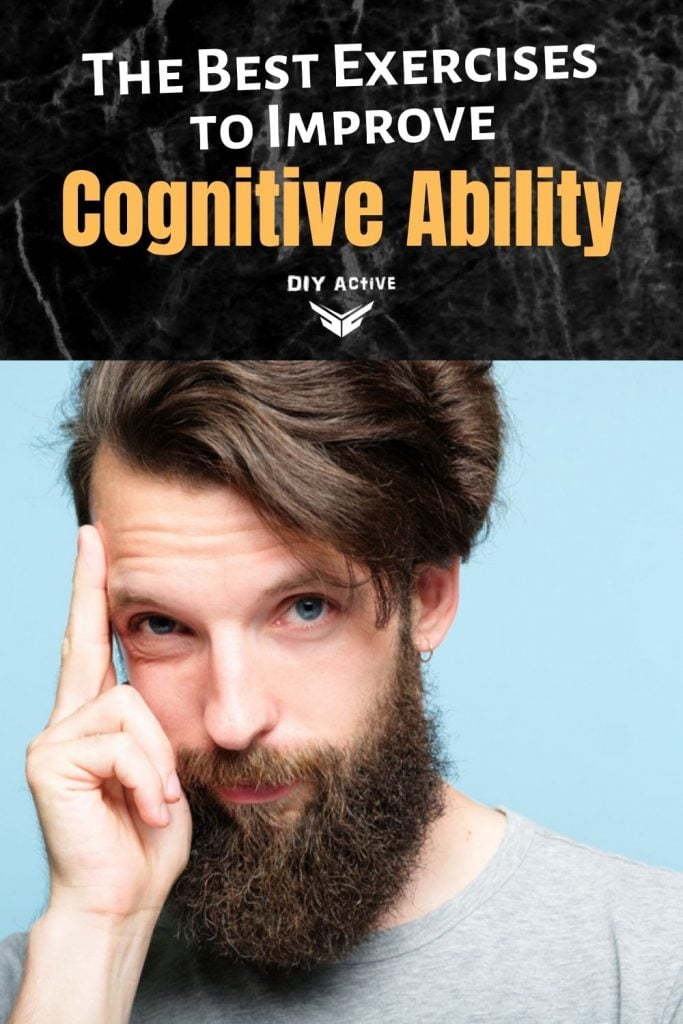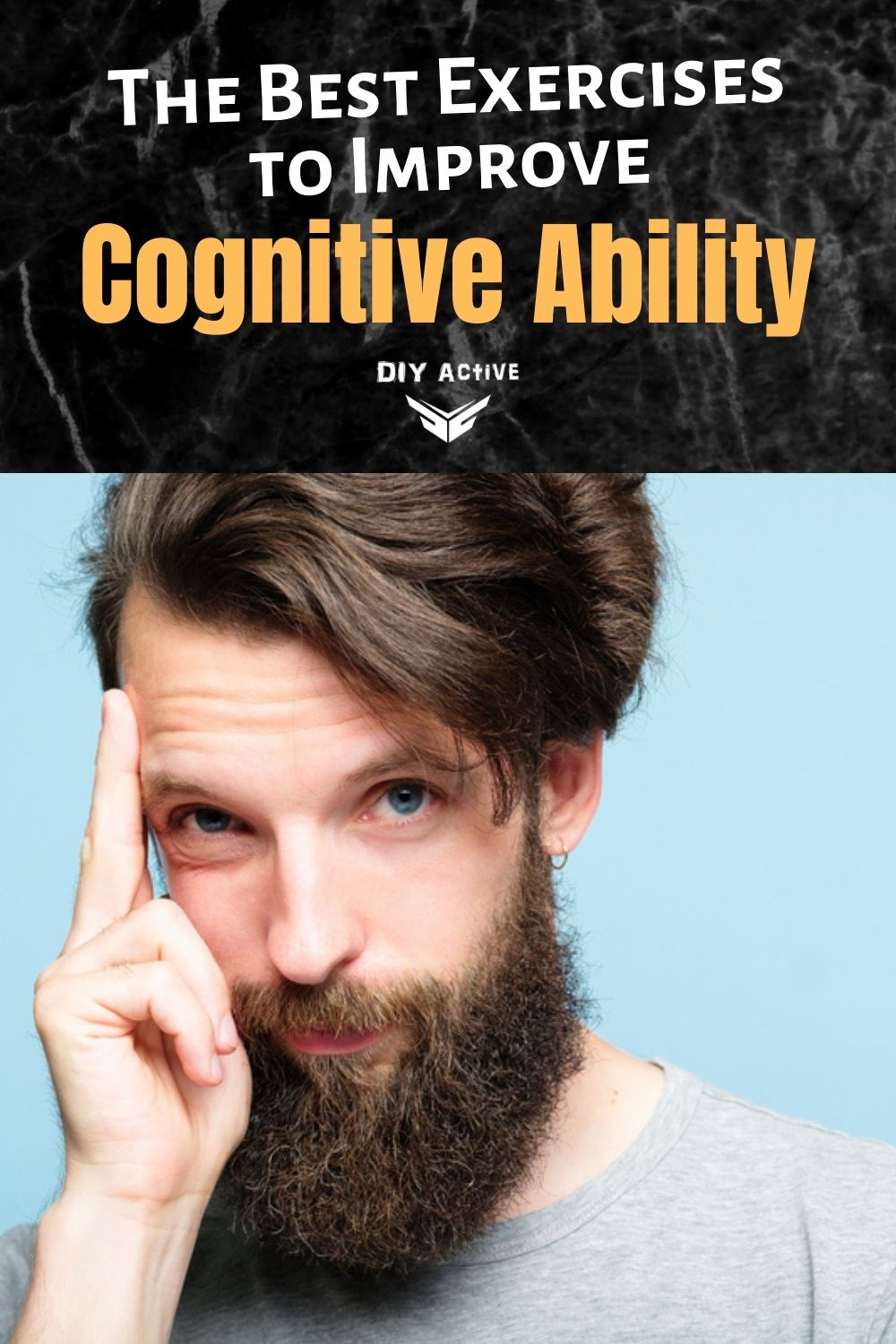
Exercises to Improve Cognitive Ability
Every year, around 350,000 people are admitted to the hospital with a brain injury. Whether caused by a stroke, a fall, a road traffic accident, a tumor, or some other issue, brain injuries are more common than you might think, and every person is affected differently.
Improve Cognitive Ability
If you or someone you love has been affected by one, you know how challenging recovery can be. The brain is responsible for the way we think, feel, remember, learn and process information, and even minor injuries can affect these cognitive processes.
Once you’ve been in contact with a specialist brain injury solicitor to help you to start living your life as normal again, rehabilitation is paramount for recovery.
Exercise is key in all this, and there are loads of free, DIY exercises you can do at home to help improve cognitive ability.
From motor exercises to brain puzzles, in this post we reveal some of the best exercises to speed up recovery after a brain injury, so read on to find out more.
Why is it Important to Improve Cognitive Ability?
Cognitive ability is how our brain understands and interacts with the world around us. There are multiple components to cognitive ability, including:
- Memory
- Language
- Perception
- Attention
- Learning
- Decision-making
- Motor skills
Our skills in these areas define how well we can carry out tasks in our day-to-day lives. Someone with high cognitive ability is usually able to go about their life without any difficulties with how they process information and put their skills to use.
For example, carrying out a task such as picking up the telephone involves:
- Perception – hearing and recognizing the phone ringing.
- Decision-making – choosing whether to answer.
- Motor skills – picking up the phone.
- Language – communicating with the person on the line.
- Attention – focusing on what the person is saying and processing the information.
- Memory – retaining information and taking action if necessary.
However, someone with lower cognitive ability, such as someone recovering from a brain injury, may struggle with this. Ultimately, they’re likely to face a variety of life challenges, depending on the extent of the issues and the parts of the brain that are affected.
How Brain Injuries Can Affect Cognitive Ability
It is very common for brain and head injuries to have a serious impact on the way you live your life.
A brain injury can damage parts of the brain responsible for cognitive skills, so some common effects of brain injury on cognitive ability include:
- Memory problems
- Perceptual impairments, such as problems recognizing objects or faces
- Reduced concentration and difficulty focusing
- Reduced ability to understand or process information
- Reduced ability to reason, such as understanding rules or taking part in discussions
- Reduced motivation
- Problems taking initiative
- Repetition, such as repeating the same topics of conversation
- Language loss (aphasia) and difficulty communicating
- Lack of empathy or self-awareness
Because of these challenges, and depending on the severity and longevity of the changes to your cognitive ability, you may have difficulties at work or be unable to drive. You may even need extra support in your day-to-day activities from loved ones or carers.
Different parts of the brain are responsible for different cognitive skills, so the exact problems a person will encounter will depend on which parts of the brain were injured.
How Does a Brain Injury Affect Quality of Life?
Issues, including the cognitive ability examples above, can impact every aspect of a person’s life. In many cases, it can have a knock-on effect on:
- Relationships
- Social life
- Motivation/ability to pursue personal projects and hobbies
- The ability to work or excel in a career
- Mental health issues, such as depression and anxiety
However, there is nothing to say that you must sit back and accept ‘fate’. In fact, there are plenty of physical and mental exercises you can take on to improve your lifestyle…
The Benefits of Exercises to Help Cognitive Ability
Just like physical exercise is good for your body, cognitive exercises help kick your brain into gear and keep it healthy. In fact, exercises designed to help cognitive function help boost ‘neuroplasticity’ which is your brain’s ability to rewire itself and forge fresh neural pathways.
To add to this, discovering new activities that are fun and work for you can also be great for your mental health.
The Best Exercises to Improve Cognitive Ability Post-Brain Injury
So, what types of exercise are best? You’ll be pleased to hear it’s not all about cognitive ability tests involving numbers, shapes, and patterns (although they certainly help). There are all sorts of fun activities that you can do regularly to help your cognitive ability and even speed up your brain injury recovery.
Here, we’ve set out some of the best activities and exercises you can do to achieve this. We’ve taken care to include a mixture here, to hopefully encourage you to try at least one!
Journaling
 Journaling has countless benefits for someone recovering from a brain injury.
Journaling has countless benefits for someone recovering from a brain injury.
Writing down your thoughts and feelings can help with motor skills (whether you choose to type or write by hand), planning and organization, memory, concentration, and numerous other cognitive skills.
Journaling is also a versatile hobby and very therapeutic. You can write about anything and everything and for any purpose, whether it is simply to improve your cognitive ability, to help you stay on top of your daily schedule, or to express your feelings.
The following are just some of the things you could write about:
- A day-to-day record of your thoughts and emotions.
- Lists of things you are thankful for, places you want to go, your goals, things to remember, etc.
- Letters to people in your life; even if they never read them, can be especially helpful if you find it hard to communicate your feelings in person.
- Handy recipes.
- A record of books you have read recently and your feelings about them.
- Your best memories together with photographs, ticket stubs, or other related mementos.
- Planning for future projects, such as hobbies you want to start, or your career progression goals.
Many view journaling as a solitary hobby, but it can also be a great way to bond with your friends and family and help them understand your experiences. If you find it hard to express your feelings in person, consider writing down what you want to say in your journal first, like a script!
If you want to go one step further, you could even write your journal in the form of an online blog. That way you can connect with people going through the same recovery process and possibly even help each other out along the way.
Word and Number Puzzles
Games, such as sudoku and crossword puzzles, have a wide range of benefits. For example, sudoku can help with cognitive organizational skills and can be adapted to suit individual needs, such as color sudoku if you find numbers or letters difficult.
Crossword puzzles are also particularly useful for boosting language recall skills. This is great if you experience some language loss (aphasia) due to your brain injury.
Mental Math
Setting yourself some simple mathematical challenges can be incredibly helpful. For example, try the ‘add 3, subtract 7’ game – this exercise is great at helping you process and organize information in your head.
It could particularly benefit you if you struggle to hold on to multiple pieces of information at once.
- To play, pick any 2-digit number and add 3 three times. Next, subtract 7. Then repeat.
- For example, 20 + 3 + 3 + 3 = 29. 29 – 7 = 22.
- 22 + 3 + 3 + 3 = 31. 31 – 7 = 24.
- 24 + 3 + 3 + 3 = 33. 33 – 7 = 26.
- And so on.
Motor Exercises
Practicing your fine motor skills is a great way to improve cognitive function, particularly if these skills were affected by your brain injury. Motor exercises you could try include:
- Stacking pennies
- Shaping dough or putty
- Stretching elastic bands between your fingers
Getting in Touch with Your Senses
This is an exercise you can do in just a few minutes, which is perfect if you have a busy schedule. Throughout your day, take a few moments to consciously think about the senses you are experiencing – what you can see, hear, taste, smell, and feel in that moment.
For example, if you are sitting in your garden, you may be able to hear the wind rustling through leaves, see a bird poking about in a bush, smell your roses in full bloom, feel your warm mug cupped in your hands, taste the warm and perfectly bitter coffee on your tongue.
Getting in touch with your senses can help engage your brain, encourage it to forge new neural pathways, and keep it active even when you’re relaxing.
Acknowledging your senses is also a great mindfulness exercise, and can be immensely helpful in grounding your thoughts if you experience anxiety.
Puzzles
Doing puzzles is not just a fun activity, it can help with memory, perception of shapes, patterns, and object sizes, and fine motor skills.
Puzzles are also a versatile activity – you can choose the number of pieces depending on how much of a challenge you want, and there are countless images to choose from if you search online.
Switch Hands
When you are writing, try switching to your non-dominant hand. For example, if you are left-handed, try writing with your right hand for a few minutes.
This will help your brain think about familiar activities in innovative ways, forging new neural pathways and strengthening cognitive ability.
You can replicate the same benefits with other activities, such as looking at your watch upside down when checking the time. Whatever it may be, try to experiment, and see where it takes you!
Finally… Never be afraid to ask for support if you need it
In this post, we’ve covered some of the best exercises you can do to improve cognitive ability after a brain injury. From fun activities to number games, to mindfulness exercises, there’s no limit to what you could try.
However, it’s important to remember that there’s no magic formula for improving cognitive ability. While these exercises might help, don’t be upset or disheartened if you don’t see results straight away.
Ultimately, never be afraid to talk to your doctor and healthcare team if you need extra support or you are feeling worried about your recovery progress. Also, make sure you reach out to your friends and family often; a good support network is vital for your mental health.
Wrap-Up
If you have a great exercise that wasn’t included in this post and has helped with your brain injury recovery, leave a comment down below.
We’d love to hear about your experiences and maybe even help each other out on our roads to recovery.
Images via Dreamstime.com



